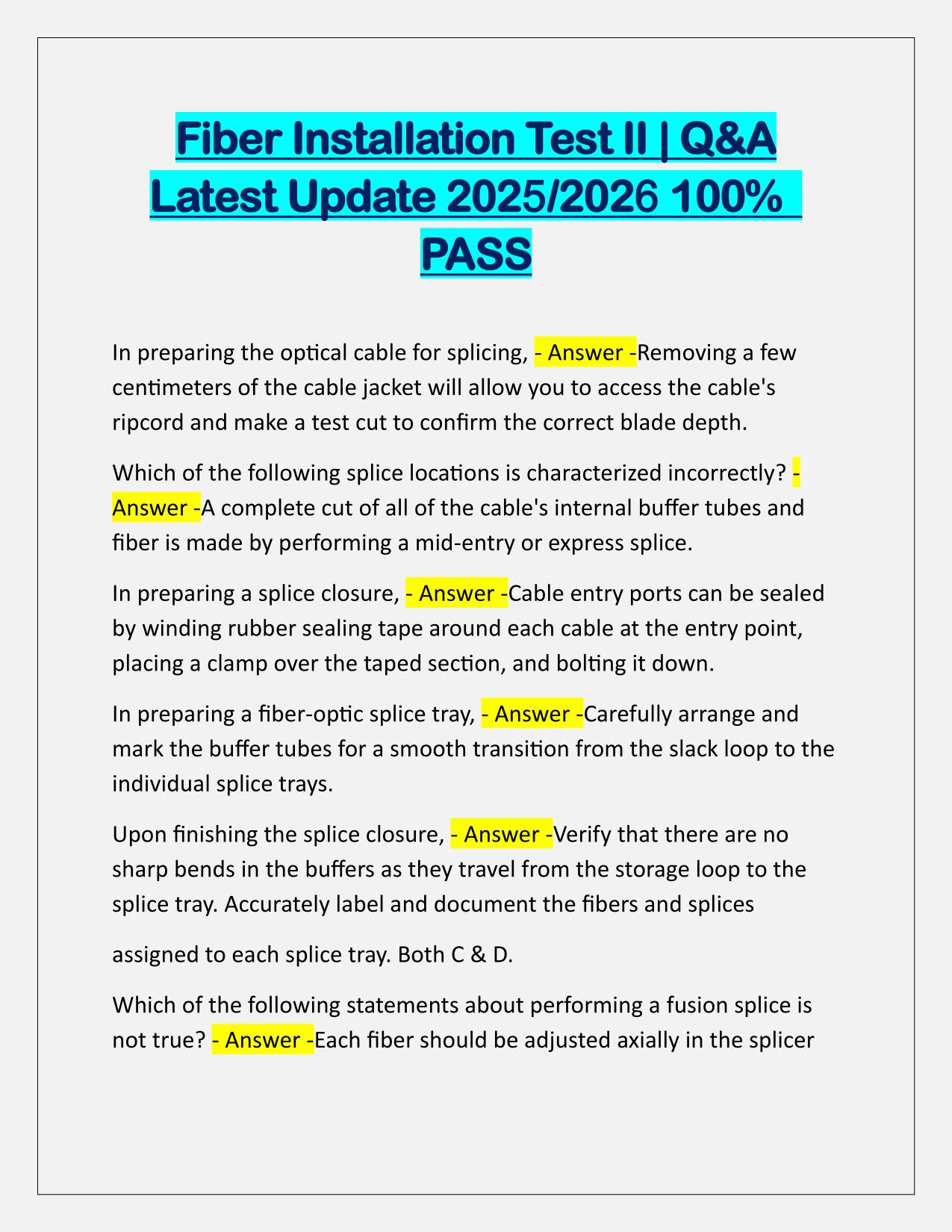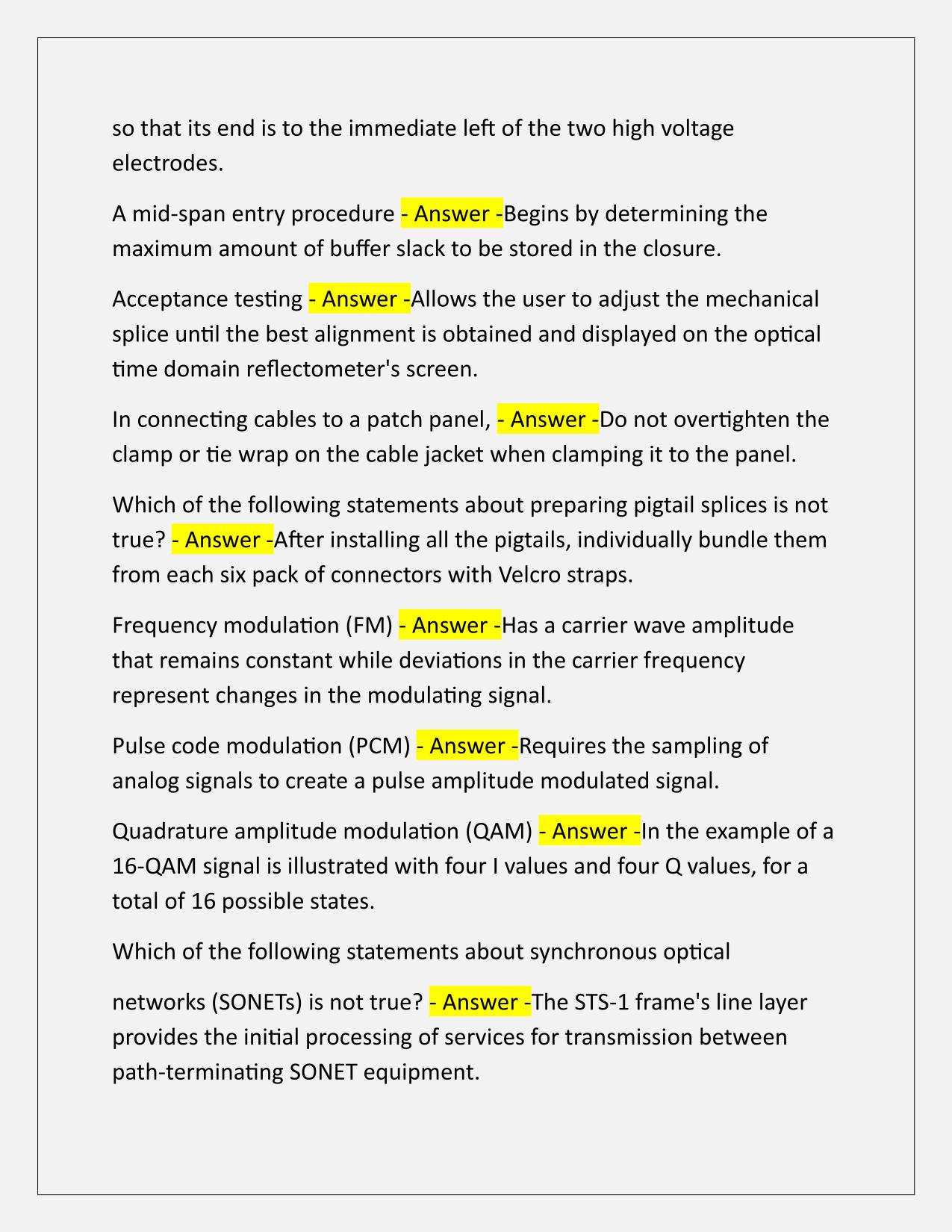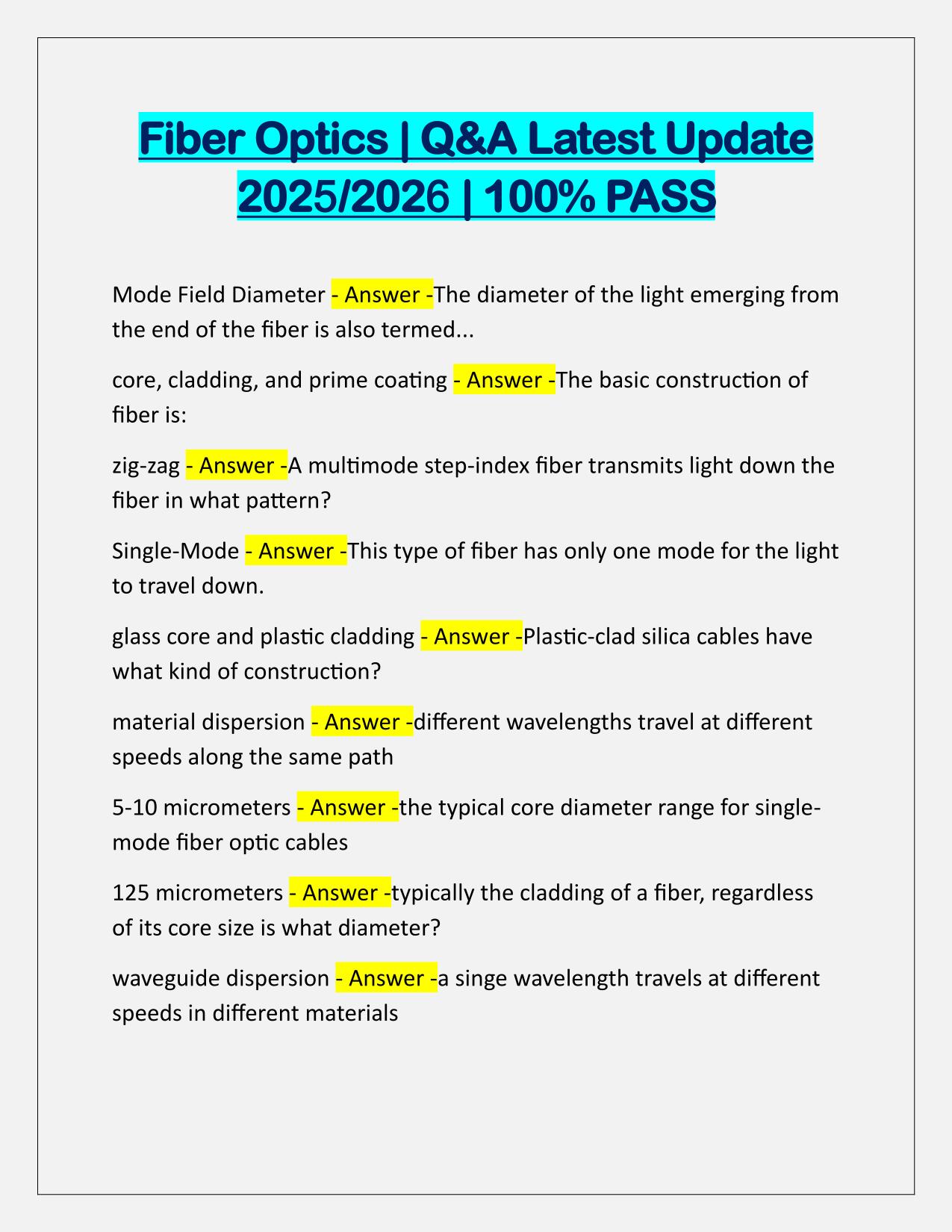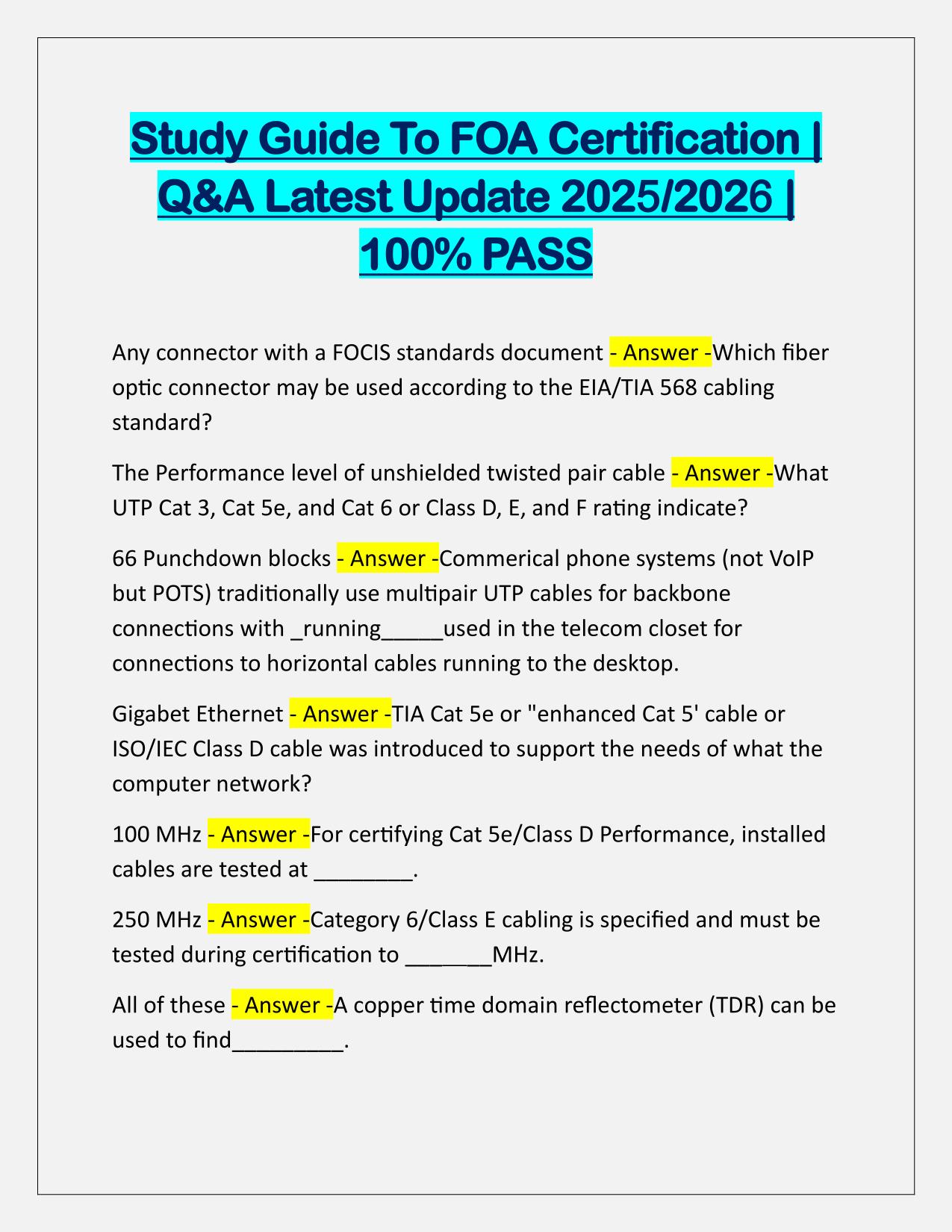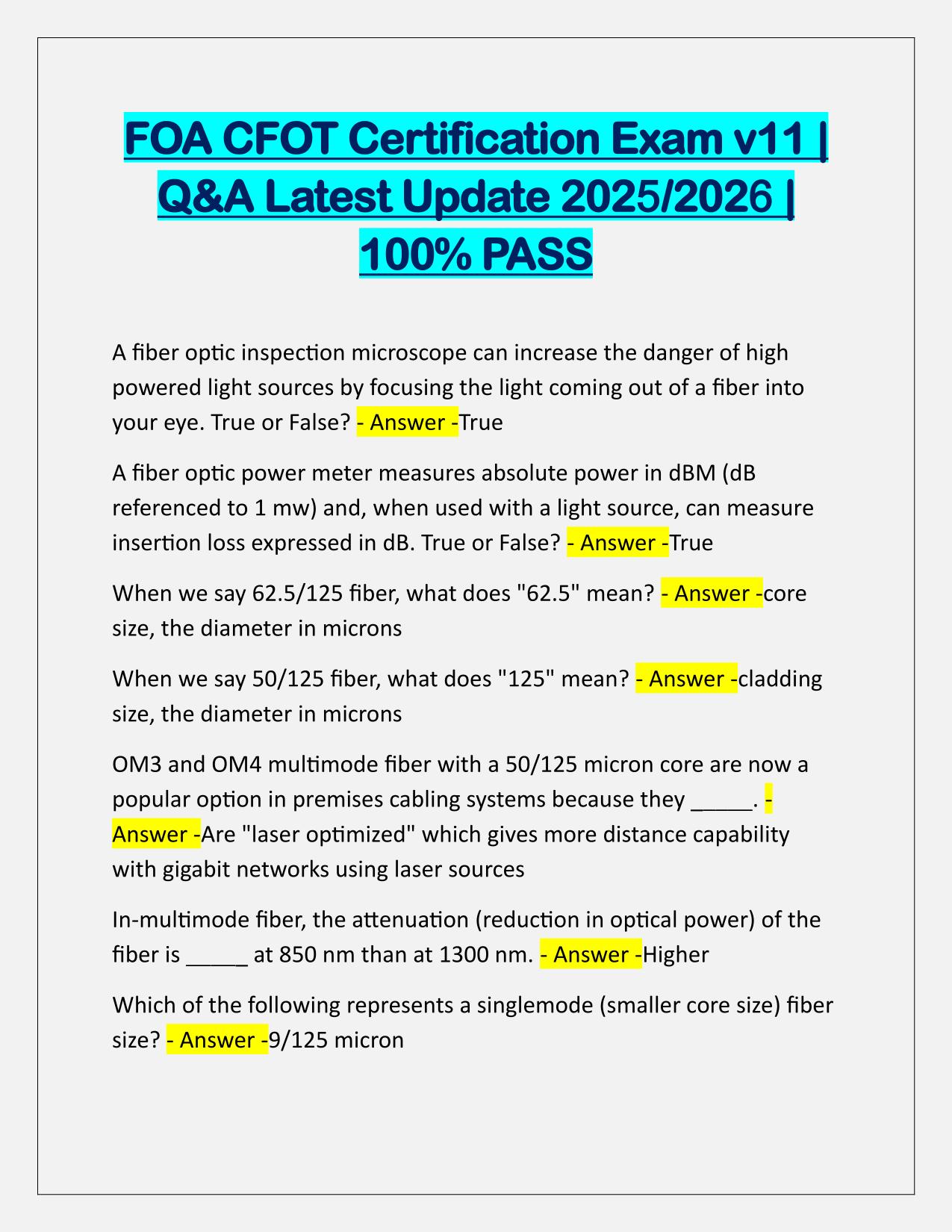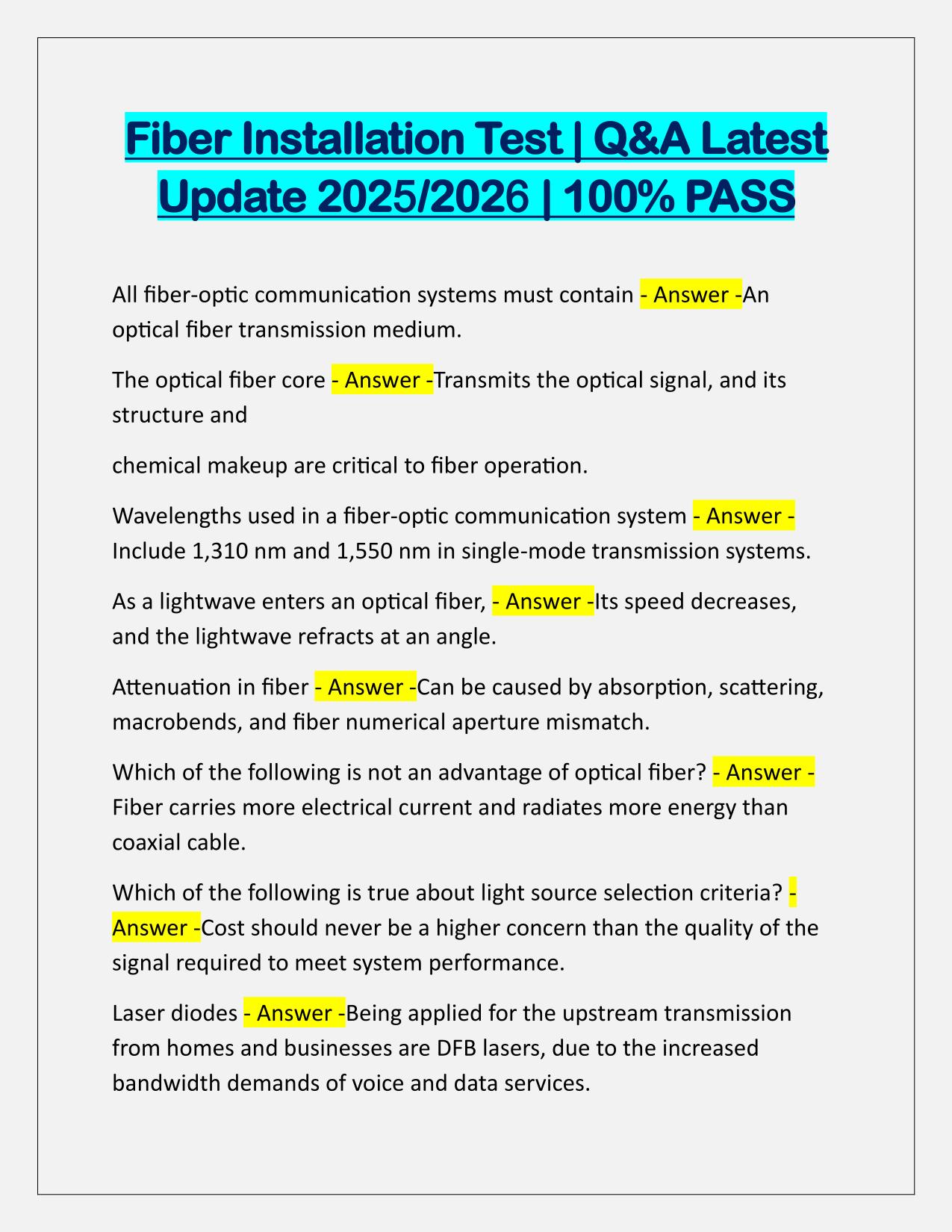Fiber Installation Test II Q&A Latest Update
Course:
Fiber Installation
Institution:
Fiber Installation
Fiber Installation Test II Q&A Latest Update
After purchase, you get:
✅ Instant PDF Download
✅ Verified answer explanations
✅ Refund if not Satisfied
✅ Prepared for 2025/2026 test cycle
Document Information
| Uploaded on: | May 13, 2025 |
| Last updated: | May 13, 2025 |
| Number of pages: | 7 |
| Written in: | 2025/2026 |
| Type: | Exam (elaborations) |
| Contains: | Questions & Answers |
| Tags: | Fiber Installation Test II Q&A Latest Update |
Seller Information

AdelineJean
User Reviews (0)
Exam (Elaborations)
$7.00
Bundle Deal! Get all 10 docs for just $20.00
Add to Cart
100% satisfaction guarantee
Refund Upon dissatisfaction
Immediately available after purchase
Available in Both online and PDF
$7.00
| 0 sold
Related Documents
Available in a Bundle
Content Preview
Fiber Installation Test II | Q&A Latest Update 2025/2026 100% PASS In preparing the optical cable for splicing, - Answer -Removing a few centimeters of the cable jacket will allow you to access the cable's ripcord and make a test cut to confirm the correct blade depth. Which of the following splice locations is characterized incorrectly? Answer -A complete cut of all of the cable's internal buffer tubes and fiber is made by performing a mid-entry or express splice. In preparing a splice closure, - Answer -Cable entry ports can be sealed by winding rubber sealing tape around each cable at the entry point, placing a clamp over the taped section, and bolting it down. In preparing a fiber-optic splice tray, - Answer -Carefully arrange and mark the buffer tubes for a smooth transition from the slack loop to the individual splice trays. Upon finishing the splice closure, - Answer -Verify that there are no sharp bends in the buffers as they travel from the storage loop to the splice tray. Accurately label and document the fibers and splices assigned to each splice tray. Both C & D. Which of the following statements about performing a fusion splice is not true? - Answer -Each fiber should be adjusted axially in the splicer
